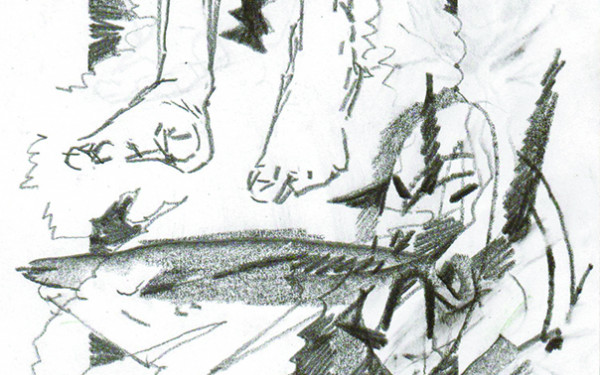‘A Giant Islamaphobic Seizure’
University of Berkeley professor Wendy Brown did not fly all the way from California to speak to Montrealers about a piece of cloth.
She also had no intention of discussing how the West appears to be in the midst of having a giant Islamophobic seizure. Nor the way in which, considering all the things that are happening in the world, it seems remarkable to her that we are so preoccupied with women’s clothing.
Brown did not come to Concordia’s EV building last Thursday night to discuss the obvious—so she briefly stated it, and then moved on.
“This is a moment in which women will essentially be ordered by the state to take off their clothes in the public sphere, or stay home,” said Brown. “To strip, or get out of the public space.”
Brown’s speech kicked off “Revealing Democracy: Bill 94 and the Challenges of Religious Pluralism and Ethnocultural Diversity in Quebec”, a two-day conference put on by the Centre de recherche interdisciplinaire sur la diversité au Québec. The conference drew from debates surrounding the Charest government’s proposed Bill 94 as a means to discuss current societal questions.
The proposed legislation suggests that women choosing to wear a niqab, the veil worn by Muslim women that covers the face below the eyes, would be ineligible to receive public services if they refused to uncover their face.
Brown explained that she would restrain herself from attempting to adjudicate the issue of Bill 94, and rather offer several assumptions that could explain how it is even possible that female clothing is an issue of legislation in modern, western, secularized democracies.
The first assumption she addressed was that secularism should produce a religiously neutral state—both socially and politically. Brown claimed that this idea was flawed. While a public space may be separate from religion, core values remain present, she said.
“The antagonism towards Islam, including proposed and actual burqa bans, is expressly premised on defending Western values—often, these values are described as Judeo-Christian.” said Brown, adding that our Western secularist state is not entirely as non-religious as it claims to be.
Another assumption Brown wanted to disprove was that practicing tolerance resulted in religious and cultural neutrality. She explained that tolerance is essentially the protection of minorities against majorities; however, a difference is still acknowledged between groups.
“Tolerance is not equivalent to equality,” she said. “It is an alternative.”This assumption was revisited in the question and answer period by an emotional Concordia professor, Christopher Thomson. His question pushed for an elaboration on the topics of tolerance and intolerance, resulting in a lengthy response from Brown.
“I think that sometimes what Western secular women and men see when they see Islamic religious female dress is a peek into the problem of gender subordination,” she said. “Then what happens is scapegoating, we say that they have this problem—so we must ban it.”
She paused, and then sighed: “But we have it. Its over here[…] not just over there.”
Brown’s theories pose that whether they manifest themselves in the form of a burqa or a bikini, a niquab or a nose job—the underlying issues are not as foreign as they appear to be.
This article originally appeared in Volume 31, Issue 15, published November 23, 2010.






_600_375_90_s_c1.jpg)